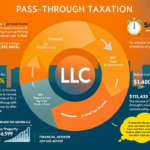There’s a lot to do when preparing a property to rent. Paint, clean carpets, make minor repairs, and ensure that plumbing, electrical, and HVAC systems are safe, functioning, and up to code. You’re taking every possible step to protect your tenant. You need to be just as focused on protecting your investment, your cash flow, and your relationship with your neighbors. Managing a rental property can be financially rewarding, but all the little details that come with dealing with renters can become tedious, stressful, and downright annoying. The best way to avoid misunderstandings and a daily barrage of questions is to have an ironclad landlord tenant lease agreement in place. By spelling out, in great detail, the expectations and responsibilities of both parties, you may be able to avoid confusion and the potential for conflict.
Why You Need a Good Lease Agreement
The key to becoming a successful landlord is good communication. As with any business arrangement, there needs to be a clear contract to eliminate the grey areas. Are pets or long-term guests allowed? Is there dedicated parking? How will maintenance requests be handled? And of course, when is rent due, and what are the preferred payment methods? Clarifying these issues before you hand over the keys can simplify your life and help you build a stronger relationship with the individuals who will be residing in your condo, apartment, or home. And though you may not want to think about it, a good lease agreement can protect you from potential legal challenges.
What Makes a Good Lease Agreement
You don’t necessarily have to consult an attorney to write a good lease agreement. Several websites provide templates for writing a lease that allow you to customize specific clauses about guests, pets, parking, and repairs. Spell out everything while minimizing the legal jargon. For example, if rent is due on the first day of the month, when is it officially considered late? Should you assess late fees? If so, how much? How do you prefer to collect rent? By check or through an ACH transfer like PayPal or Venmo? For a sample rent collection policy, download this helpful free guide: https://www.payrent.com/articles/guide-to-creating-a-solid-rent-collection-policy/.
Online lease agreement templates are a significant first step towards creating an agreement that protects you and your investment property. You must always include specific critical clauses in your contract, keeping in mind that these clauses can vary from state to state. Consult your state government website to research local laws.
At a minimum, a good lease agreement should include:
- Names and contact information for both landlord and tenants. It’s also a good idea to get a relative or friend’s contact information in an emergency.
- Address and type of property. Commercial, residential, or a room within a private home. It’s essential to clarify that the unit is for residential, not commercial use. (For example, you don’t want your tenants turning your property into a short-term rental.)
- The term of the lease. Some landlords prefer annual leases, while others like the flexibility of month-to-month. Just make sure that both parties understand the terms.
- Deposit amounts, rent, and the dates those payments are due. It’s also important to include your preferred method of payment.
- Explain how late fees and penalties, like withheld deposits, apply.
If you own or manage multiple properties in different states, it may be a good idea to consult competent real estate attorneys licensed in the applicable states. (This article is not meant to be viewed as legal advice, just a guide to help you start developing a solid lease agreement.)
13 Additional Clauses to Include in Your Lease Agreement
Regardless of the state the rental is located in; some essential clauses should always be included in a strong, enforceable lease agreement. A lease clause spells out agreement specifics in writing and clear detail. Here are 13 that you should consider including.
- Late Payment
Rent is due on the first of the month, or fifth, or whatever day you choose. You can assign a grace period of three to five days or, again, whatever works for you. Anything after that grace period is subject to a late fee that can be a flat rate or assessed at a daily rate. Also, be sure to specify any penalty fees associated with returned checks or financial institution payment denials.
- Security Deposits
It’s recommended you conduct an inspection walkthrough with the tenant before taking possession of the property. Use a detailed checklist that notes the current condition of as many items as possible. Does the oven work? Is the carpet clean and free of stains, etc.? Use that same checklist for a walkthrough when they hand over the keys and compare the condition of all items. Of course, wear and tear will be expected, particularly if the renter has been there for an extended period.
- Occupancy
You should list the names of all occupants that will reside in your rental. Life circumstances change, so family or friends may move in or out of the unit during the lease period. This is your property, so you should know who is coming in and out. Unauthorized occupants can cause problems with neighbors, adding additional vehicles, noise, and other potential conflicts. You can outline visitor rules to clarify that a guest may be welcome, but not more than an approved amount of time. It’s also vital to forbid subletting or using all or part of the property as a short-term rental. Potential complaints from neighbors may be the least of your worries if your tenant gets caught using the property as an unlicensed short-term rental. Your insurance may not cover an injury to an unauthorized paying guest.
- Pets
More and more landlords are becoming receptive to the idea of renting to pet owners. If you have a no pets policy, then make it clear. If you’re okay with them, you can dictate the size, type, and the number of animals allowed. Many pet-friendly landlords charge an extra cleaning deposit to cover damages an animal may cause. Some even include an additional monthly dollar amount per pet. It is illegal to prevent a disabled person from having a service animal. Check the ADA website to get further clarification about service animals.
- HOAs and Property Appearance
When it comes to renting out a property that includes an HOA, it is the owner’s responsibility to follow the guidelines in the HOA by-laws. Either outline what the expectations for the tenant are or take care of maintenance yourself. For example, most landlords continue to handle things like landscaping and the painting and upkeep of a home’s exterior to ensure they comply.
- Alterations
You probably invested a sizeable amount of money getting your rental ready for its next occupants, so it’s crucial to outline what a renter can or cannot do while residing there. Can they paint, wallpaper, or permanently alter the appearance of your property? Be specific. If you’re okay with painting, you can require a tenant to ask in writing with a paint color sample. Be reasonable. Some landlords don’t allow their tenants to hang artwork or photos on the wall. Minimalism is cool, but most people don’t want to live in a plain white box.
- Repairs & Maintenance
Encourage your tenants to be proactive when it comes to maintenance. A tiny leak can turn into a flood if not addressed right away. Regarding minor things, it’s best to have them make a repair request in writing. Compile a list of vendors that can quickly take care of repairs if you aren’t the DIY type. Remember, it’s your responsibility to provide a clean, safe dwelling with running water and functioning heat.
- Utilities
The tenant is responsible for dealing directly with the local utility provider for their electricity, gas, water, sewage, and waste removal. The landlord is not responsible for any power outages and may have certain utilities shut off to perform necessary repairs. The landlord should notify the tenant, in writing, about any expected temporary loss of utilities so they can adequately prepare. Customarily, the tenant also pays for their internet and cable services. Some landlords include free Wi-Fi to tenants, though it is never safe for multiple unknown parties to share these connections.
- Disclosures
Laws will vary according to your geographical location, but most states require that you disclose certain conditions about the house. For example, you must disclose any previous detection and mitigation of radon, lead, asbestos, or mold. In addition, some states require that you disclose a death that has occurred in the unit within the previous three years. Finally, believe it or not, some states even require that you disclose any paranormal activity witnessed during a previous tenancy. Check your local laws before you write the lease. It can save you from legal problems later.
- Insurance
- Parking
Depending on the location and type of dwelling, you may have to include a clause about parking. For example, some condos and apartments include one or two spaces per unit, but some only offer street parking. Be transparent about potential necessary permits for on-street parking or make sure they have a copy of their commercial property’s parking rules. If your rental has a driveway, you may want to restrict the number of vehicles that can be parked there overnight. The last thing you want to see is some old clunker parked on your carefully manicured front lawn.
- Owner Entry
Of course, you want to respect your renter’s privacy, but there will be times you need access to the unit for emergencies, repairs, or inspections. You must provide your tenant with a 24-hour written notice of your intent to enter the property. Unless an urgent repair is needed, you must plan that business during regular business hours. If your renter consents, you can set up the repairs or maintenance at other times.
There may also be times when it’s necessary to show a property to a potential buyer or future tenant. The same rules apply. Try to give the tenant adequate notice and communicate your expectations about the condition and cleanliness of the unit. As always, familiarize yourself with locally applicable laws.
- Lease Termination
Again, life happens, so there are cases where a tenant needs to terminate a lease to accept a new job in another city. It isn’t unusual to allow a tenant to leave before their lease term is up with proper written notice. Schedule a final walkthrough to assess any damages. Of course, you can insist on enforcing the lease through its conclusion, but do you want a disgruntled tenant living in one of your properties?
You can also terminate the lease early if your tenant is in breach of their contract in any way. You too must provide a written notice to ask them to vacate the premises. If they refuse, then you can begin the eviction process.
Find the Best Lease Agreement Website
There are hundreds of sites providing boilerplate templates that you can use to write an effective lease agreement. Lease development website outlines are provided on legal sites, real estate management sites, and frequently used contract template sites. Check online reviews for help selecting the best apartment, condo, or house lease agreement format for your situation.











